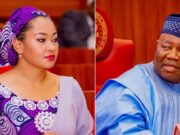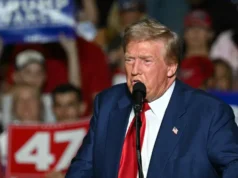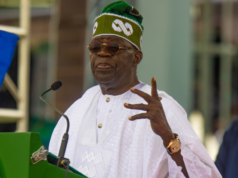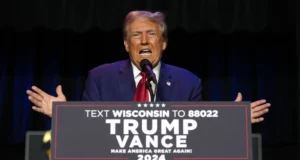President Joe Biden and former President Donald Trump have agreed to participate in presidential debates scheduled for June and September, following Biden’s challenge to his rival and Trump’s readiness to engage.
CNN announced it will host the first debate on June 27 in Atlanta, Georgia.
 Advertorial
Advertorial
Subsequently, both candidates agreed to a second debate on September 10, to be hosted by ABC.
This agreement ends months of speculation over whether the debates would occur, as both the Democratic incumbent and the Republican challenger opted to bypass the traditional commission that has organized presidential debates since 1988.
Biden, 81, set specific conditions for the debates, including the absence of a studio audience to avoid the chaos experienced in the 2020 debates with Trump.
 Advertorial
Advertorial
In contrast, Trump, 77, favored larger venues for added excitement and proposed additional debates in July and August.
“Donald Trump lost two debates to me in 2020. Now he’s acting like he wants to debate me again. Well, make my day, pal,” Biden stated in a video posted on X.
He also mocked Trump over his ongoing legal issues, suggesting Wednesdays would be ideal for debates given Trump’s trial schedule.
Biden confirmed his participation in the ABC debate, adding humorously, “Trump says he’ll arrange his own transportation. I’ll bring my plane, too. I plan on keeping it for another four years.”
 Advertorial
Advertorial
Trump later announced his acceptance of a third debate on October 2, hosted by Fox News, but there was no immediate response from Biden regarding this additional debate.
CNN confirmed there would be no audience for its debate, aiming to maximize the candidates’ speaking time.
Biden’s decision to engage in these debates seems to be a strategic move to challenge Trump’s lead in key battleground states ahead of the November election.
The Biden campaign hopes to counteract what they perceive as a growing “nostalgia” for Trump, despite the Republican’s plans to significantly expand presidential powers if re-elected and pursue “retribution.”
 The debates promise to be a significant event in the lead-up to the election, offering voters a direct comparison between the two candidates’ visions for the future of the United States.
The debates promise to be a significant event in the lead-up to the election, offering voters a direct comparison between the two candidates’ visions for the future of the United States.

















